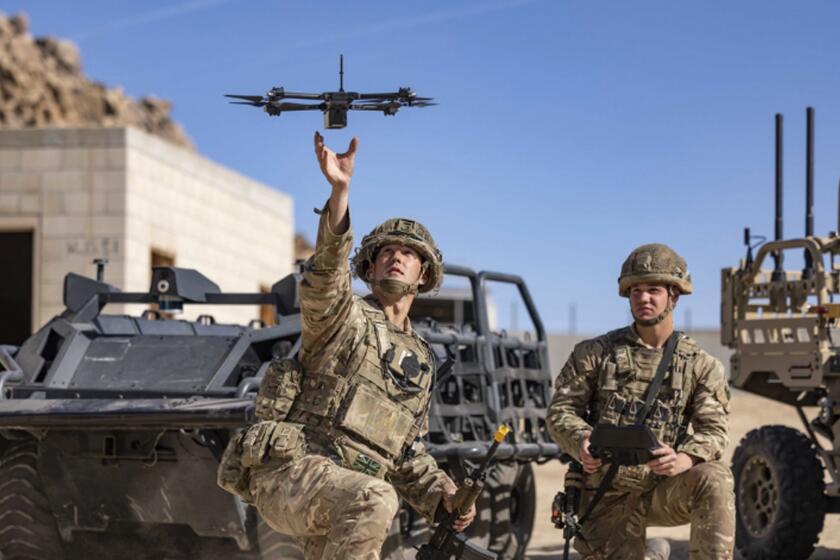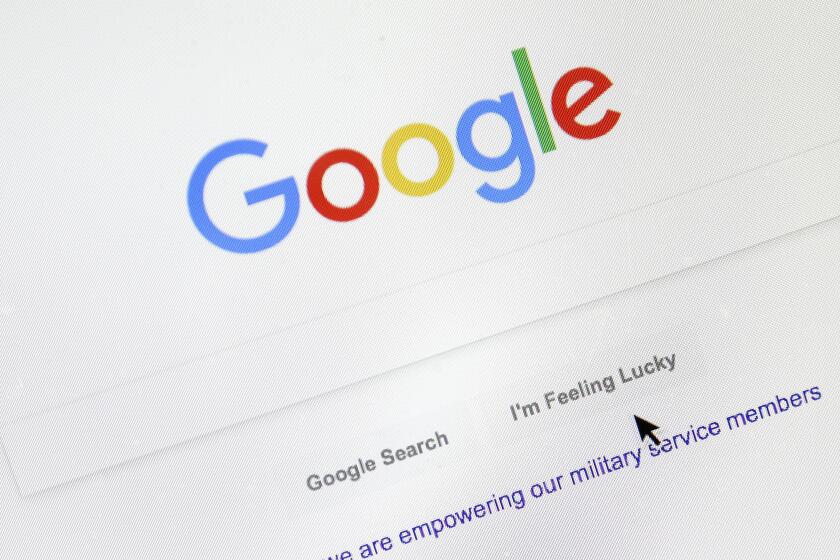Big firms score in airwave auction
The nation’s two largest wireless companies emerged as the biggest winners in a record-setting auction of public airwaves, increasing the odds that they will continue to dominate that market for years to come.
Verizon Wireless agreed to pay more than $9 billion of the $19 billion raised for government coffers and got the largest chunks of the spectrum, which it is expected to use for such high-volume transmissions as video and corporate data.
AT&T; Inc., the only carrier larger than Verizon, will pay more than $6 billion for new slices of the spectrum, according to figures released Thursday by the Federal Communications Commission. It won licenses to use smaller parts of the airwaves, but AT&T; noted that it recently bought $2.5 billion worth of more-valuable spectrum in a private sale.
The just-concluded auction covers licenses to transmit and receive electronic signals of different frequencies in various regions.
Consumer advocates said they were disappointed that no major new companies emerged. They hoped that the strong signals up for grabs -- currently used by television stations but due to be returned to the government in 2009 as the stations complete their switch to digital signals -- would provide a third high-speed data pipe to homes, rivaling DSL and cable.
But both AT&T; and Verizon co-owner Verizon Communications Inc. already offer DSL service.
“It was the only place on the wireless spectrum where you could possibly have a third pipe, and they didn’t get that. That’s a big failure,” said Ben Scott, Washington policy director of Free Press, a nonprofit group opposed to media consolidation.
Industry experts said it was hardly a surprise.
“It amazes me that people think that when you have networks already in the ground, new companies can just come in and have a chance,” said wireless researcher and consultant Andrew Seybold.
Google Inc. had caused a stir when it asked the FCC to require that winners of the most valuable pieces of the spectrum auction rent transmission rights to outsiders. The industry powerhouses beat back that idea.
In a compromise, Google agreed to put down a minimum $4.6-billion bid for that part of the auction if the FCC would at least require the winners to grant any cellphone or similar device access to their network. That should help the Internet search leader, which wants to sell software to phone makers and sell ads on Web pages displayed to mobile users.
Verizon said recently it would allow any compatible handset to have access to all of its network. Verizon outbid Google, whose investors were relieved. If Google had won, it would have had to spend billions of dollars to enter the wireless business. “Google walked away the happy loser,” said analyst and former top FCC staffer Blair Levin of Stifel, Nicolaus & Co.
Verizon had to spend heavily to keep up with AT&T;, analysts said.
“They are in a pitched battle,” said Kenneth Dulaney of Gartner Inc. “Not surprisingly, it takes a tremendous amount of money to do anything.”
No. 3 carrier Sprint Nextel Corp., which sat out the process, has been beset by technological challenges, subscriber defections and management turnover.
The wireless spectrum is slated to change hands in February, but it will take years more before the new capabilities are fully exploited, Seybold and other analysts said.
Verizon and AT&T; said little about their plans Thursday.
“We were successful in achieving the spectrum depth we need to continue to grow our business and data revenues . . . and to continue to lead in data services and help us satisfy the next wave of services and consumer electronics devices,” Verizon said. The companies will be freer to talk April 3, when the government’s anti-collusion rules lift and winners can sell or trade what they’ve acquired.
A surprise winner for another block of the spectrum was satellite television company EchoStar Communications Corp. It spent more than $700 million for spectrum that reaches across almost the entire U.S. but can transmit signals in only one direction rather than two.
Analysts said that the company might plan a wireless video system, though an EchoStar spokeswoman couldn’t be reached for comment.
One chunk of spectrum failed to attract the minimum bid established by officials. That slice of the airwaves was to be shared by private winners and public emergency responders.
FCC Chairman Kevin J. Martin said the commission would reevaluate what should be done with those rights.
--



